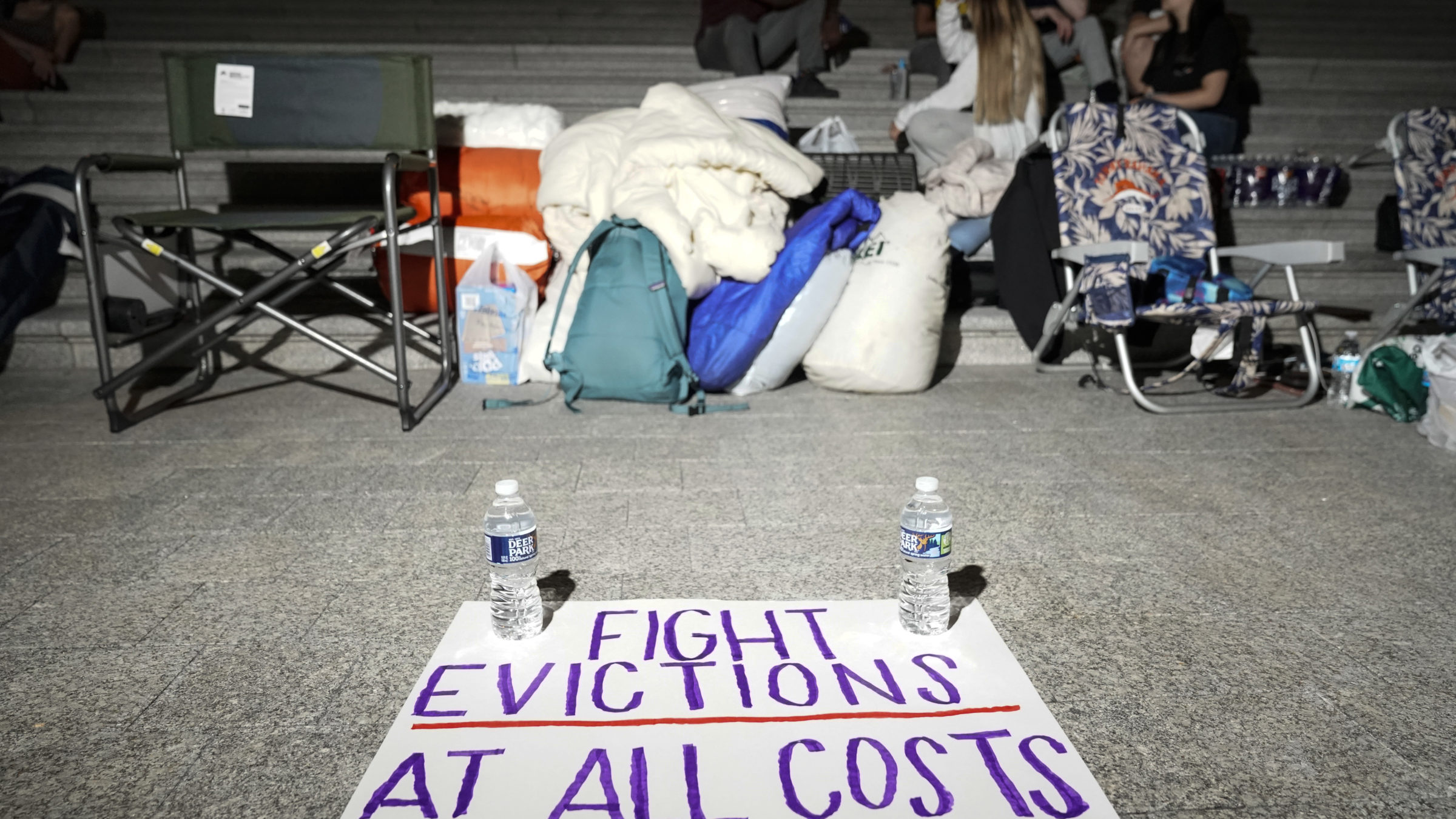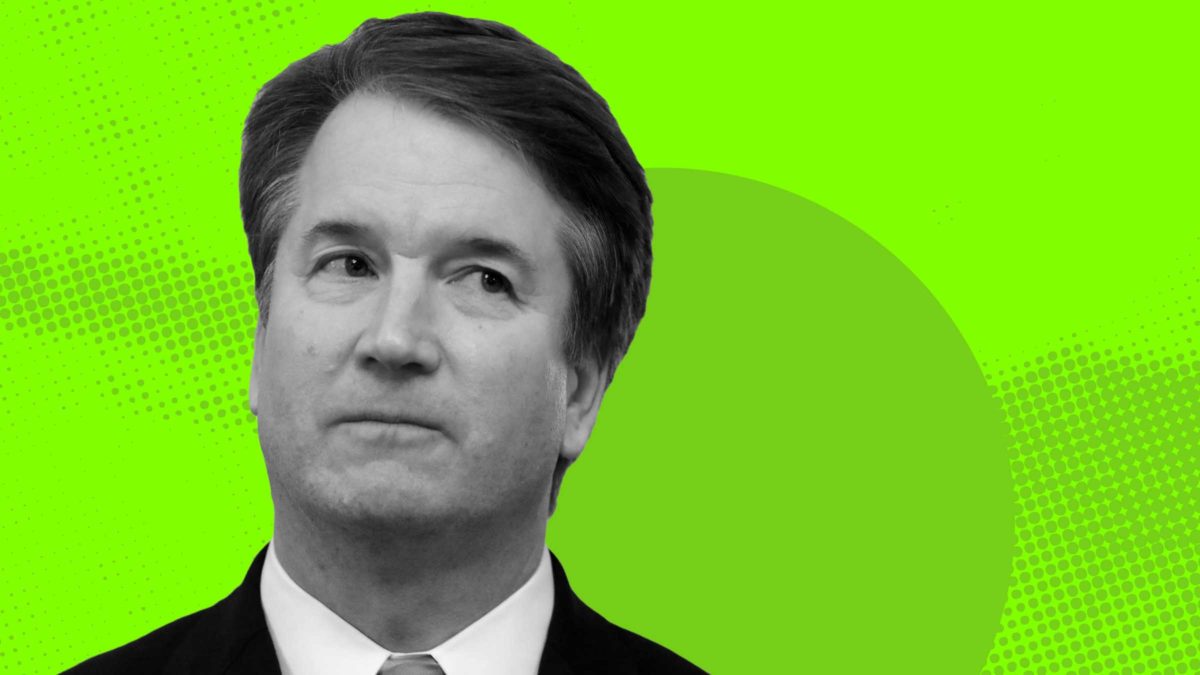It would be difficult to overstate the extent to which the Supreme Court does not care about poor people. This has been true for a long time, of course; the infamous Lochner Court of the early 20th century might as well have been led by Chief Justice Monopoly Man. But the starkest recent evidence is Alabama Association of Realtors v. Dept. of Health and Human Services—the late August shadow docket case in which the Court effectively invalidated President Biden’s nationwide eviction moratorium in the midst of a deadly pandemic.
The Court’s order in Alabama Realtors was unsigned, although with the three liberals dissenting, it was easy to identify the majority’s likely makeup. In it, the conservative justices expressed grave concerns about the prospect of hypothetical landlords perpetually deprived of rental payments and unable to exclude others from their private property. “The moratorium has put … millions of landlords across the country at risk of irreparable harm by depriving them of rent payments with no guarantee of eventual recovery,” they wrote.
Homelessness, however, goes unmentioned. Neither the words “homeless” nor “unhoused” even appear in the opinion. The Court made it easier to force people out of their homes during a global pandemic without meaningfully considering the people they were potentially pushing into shelters and onto streets.
The order concluded a spate of frenzied litigation on the subject: Earlier this summer, the Supreme Court reluctantly allowed a different version of the moratorium to remain in effect while legal challenges continued. Justice Brett Kavanaugh provided the deciding vote to leave it in place because, he explained, the moratorium was about to expire anyway. But after significant political pressure from Missouri Rep. Cori Bush, among others, the CDC reinstated a slightly-modified moratorium several days later. Alabama Realtors and other plaintiffs promptly returned to court, arguing, more or less, won’t somebody please think of the landlords?
This time, the Court’s conservatives heard the call, fashioned their robes into capes, and flew to the rescue. In its opinion, the Court acknowledged that up to 17 million tenants were at risk of eviction, but concluded that additional uncollected rent would be an unacceptable injury to landlords. Where the three dissenting liberals saw people, the majority saw a return on investment to protect.
When courts are considering the lawfulness of something like the eviction moratorium, they are supposed to use a process known as “balancing the equities” to decide what to do in the meanwhile. Only one of the four factors courts are supposed to consider asks which party is probably correct on the substantive underlying legal question. The three other factors all focus on the practical consequences of the court intervening while litigation continues, like what hardships the parties and the public may face, and how severe those hardships will be. Decisions about equity are supposed to turn on whether and who will experience “irreparable harm” while the courts sort out the jurisprudential details.
In other words, “Is the eviction moratorium lawful?” was not actually the question the Court was supposed to answer. Rather, the key question was, “Is it fair to leave the eviction moratorium in place while landlords and the government are still disputing its lawfulness?”

Photo by Joshua Roberts/Getty Images
The eviction moratorium plainly did not cause irreparable harm to landlords. It could not have done so. Nothing in the CDC’s regulation prevented landlords from charging and collecting rent, or permanently barred landlords from evicting tenants. To claim the moratorium’s protections, residents had to declare under penalty of perjury that their annual income was under $99,000; that they lived in areas with substantial or high transmission levels of COVID-19; that they were unable to make full rent payments due to high out-of-pocket medical expenses or significant loss of income; and that they would likely be rendered homeless by eviction. Tenants also had to indicate that they were doing their best to obtain all available housing assistance, and were paying as much rent as they could. The moratorium still required tenants to pay back rent once it expires. In the meantime, any “harm” to real estate interests would have been mitigated as states worked, however slowly, to disburse federal rental assistance funds to get landlords paid.
The eviction moratorium simply asked landlords to be patient. When the Court lifted the moratorium, they told tenants to accept poverty instead.
This isn’t the first time this pandemic that the Court weakened restrictions requiring landlords to wait a bit before potentially sending people to their deaths. Some two weeks before the Court decided Alabama Realtors, it hollowed out New York State’s eviction relief law, too, in Chrysafis v. Marks. “Homelessness” didn’t appear in that opinion, either. Justice Breyer’s dissent lamented that that majority also neglected to actually balance the equities; the only interests the Court really considered were those of the landlords.
As Breyer noted, landlords are probably having a rough year. (Who isn’t?) But the Court’s failure to consider the far more dire circumstances of people facing imminent homelessness is breathtakingly cruel and irresponsible.
The stakes in the eviction moratorium cases were high. The CDC warns that the absence of federal protections could lead to an unprecedented wave of evictions, with millions of people—disproportionately people of color— at risk of being forced from their homes and into overcrowded congregate living settings or no shelter at all. The ongoing pandemic would exacerbate this crisis: People who are evicted would become more likely to contract and spread a deadly illness that has been ravaging a country that has fully vaccinated about half of its residents. If you were to place the competing interests of landlords and everyone else on a seesaw, on one side there would be dollars and on the other side there would be deaths. Balancing equities has to depend on more than a rich man’s ability to balance his checkbook.
Leaving the moratorium in place would have offered at least some protection to people at risk of irreparable legal, physical, and financial harm simply because they were poor. But this Court’s concept of fairness and justice is often limited to protecting monied people’s continued financial prosperity. Everyone else is on their own.

